FASTENER INDUSTRY
The fastener industry is a crucial sector encompassing the production of various components designed to hold objects together securely, ranging from nuts and bolts to screws, anchors, and washers. Fasteners are essential in virtually every industry, including construction, automotive, aerospace, electronics, and manufacturing. Given the importance of reliability and strength in fastening applications, forging for fastener industry plays a vital role in producing high-quality fasteners that meet stringent performance standards. Forging processes enhance the mechanical properties of materials, ensuring that fasteners exhibit exceptional strength, durability, and resistance to fatigue. In this detailed overview, we will explore the multifaceted applications of forging for fastener industry, highlighting the critical importance of forged products in various sectors and emphasizing their advantages over other manufacturing methods.
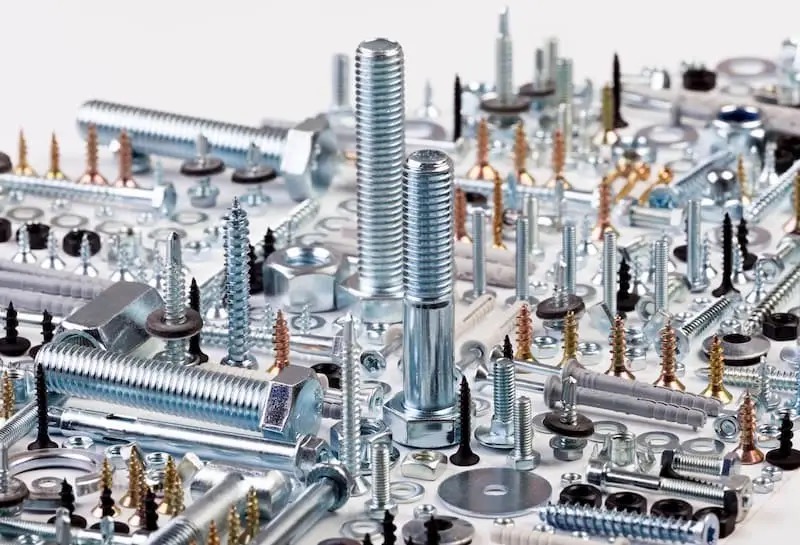
1. Understanding the Forging Process
Forging is a manufacturing process that involves shaping metal using compressive forces, typically achieved through the use of hammers or presses. The process can be performed at various temperatures, including cold forging, warm forging, and hot forging, each offering unique benefits. Forging aligns the grain structure of the metal, enhancing its strength and toughness while minimizing defects such as porosity and inclusions that can weaken the final product. As a result, forging for fastener industry applications ensures that forged fasteners demonstrate superior mechanical properties compared to those produced through other methods such as casting or machining.
The choice of forging over other manufacturing processes for fasteners stems from the need for components that can withstand high stress, vibration, and extreme environmental conditions. By utilizing forging techniques, manufacturers can produce fasteners that offer enhanced tensile strength, ductility, and fatigue resistance, making them suitable for critical applications where failure is not an option.
2. Forged Bolts and Nuts: Strength and Reliability
Bolts and nuts are among the most commonly used fasteners in construction, manufacturing, and automotive applications. The structural integrity of these components is paramount, as they are responsible for holding various parts together under considerable loads and stresses. Forged bolts and nuts are preferred in the fastener industry due to their superior strength and reliability.
Forged bolts exhibit higher tensile strength than their cast or machined counterparts, making them ideal for applications that require resistance to shear and tensile forces. The forging process imparts a fine grain structure, which enhances the strength of the bolt and reduces the risk of failure under load. This is particularly important in construction applications where structural safety is critical.
Similarly, forged nuts are designed to provide a secure fit with bolts, ensuring that the assembly remains tight even under dynamic loads. The ability of forged nuts to withstand high levels of torque without deforming or stripping is essential for maintaining the integrity of bolted connections. Together, forged bolts and nuts form a reliable fastening system that can be used in various applications, from heavy machinery and infrastructure to automotive components and aerospace structures.
3. Screws and Specialty Fasteners: Precision Engineering
Screws and specialty fasteners, such as self-tapping screws and anchor bolts, also benefit significantly from the forging process. These components require precise dimensions and tolerances to function effectively, and forging provides the consistency and accuracy needed for high-quality production.
Forged screws are engineered to withstand high levels of shear and tensile stress while maintaining a sharp thread profile for easy insertion. The forging process allows manufacturers to produce screws with enhanced hardness and wear resistance, making them suitable for demanding applications in construction, automotive, and machinery assembly.
Specialty fasteners, including anchor bolts used in concrete applications, also benefit from forging. These fasteners must exhibit exceptional holding power and resistance to environmental factors, such as corrosion and temperature fluctuations. Forged anchor bolts provide the necessary strength and durability to secure structures in place, ensuring safety and stability in construction projects
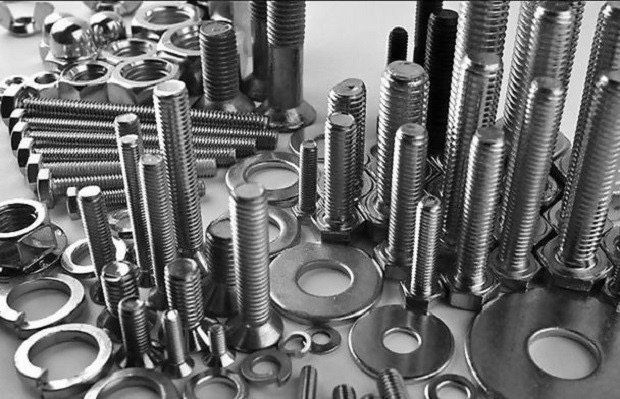
4. Corrosion Resistance: An Essential Factor
In many applications, fasteners are exposed to harsh environmental conditions that can lead to corrosion and degradation over time. The fastener industry often faces challenges in ensuring that components can withstand these conditions without compromising performance. Forged fasteners can be produced from corrosion-resistant materials such as stainless steel or high-strength alloys, making them suitable for use in marine, chemical, and outdoor applications.
The forging process enhances the protective properties of these materials, ensuring that the final product is less susceptible to rust and corrosion. For instance, forged stainless steel fasteners are widely used in marine environments, where exposure to saltwater can accelerate corrosion. By choosing forged fasteners, manufacturers and end-users can ensure that their products remain functional and reliable, even in the most challenging conditions.
5. The Role of Fasteners in Various Industries
The versatility of forged fasteners allows them to be utilized across multiple industries, each with unique demands and requirements. In the construction industry, forged bolts, nuts, and screws play a crucial role in securing structural elements, ensuring the integrity of buildings, bridges, and other infrastructures. The reliability of these fasteners is essential for maintaining safety standards and meeting building codes.
In the automotive industry, forged fasteners are integral to assembling vehicles, from securing engine components to fastening body panels. The automotive sector demands fasteners that can withstand high temperatures, vibrations, and exposure to various fluids, making forged products the preferred choice for manufacturers aiming for performance and longevity.
Aerospace is another industry where the importance of forged fasteners cannot be overstated. Aircraft and spacecraft components must meet stringent safety and performance standards, and forged fasteners provide the strength and reliability required for critical applications. The aerospace sector often requires specialized fasteners designed for lightweight and high-strength applications, and forging allows manufacturers to meet these demands effectively.
6. Custom Forgings: Meeting Specific Requirements
One of the significant advantages of the forging process is the ability to create custom fasteners tailored to specific requirements. Many industries have unique applications that necessitate specialized fasteners, and the forging industry is well-equipped to meet these needs. Custom forgings allow manufacturers to produce components with unique shapes, sizes, and mechanical properties that are not readily available in standard fastener catalogs.
By working closely with clients, forging companies can design and produce fasteners that meet exact specifications, ensuring that they perform optimally in their intended applications. This ability to provide tailored solutions enhances the value of forged products in the fastener industry, allowing businesses to achieve greater efficiency and performance in their operations.
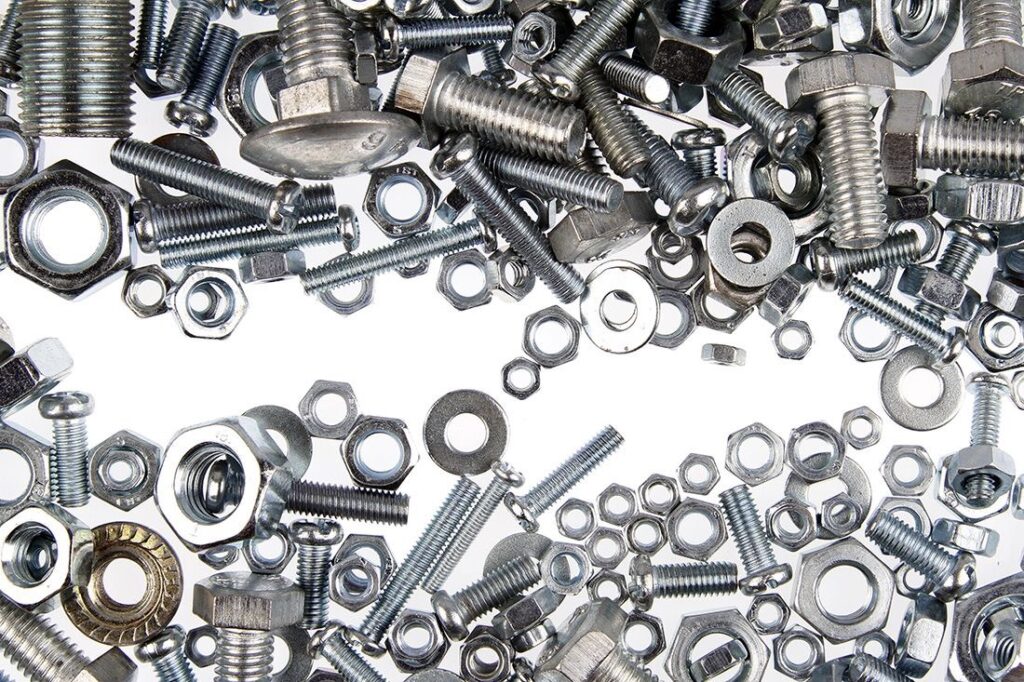
7. Quality Assurance: Ensuring Performance and Safety
In the fastener industry, quality assurance is critical to ensuring that products meet industry standards and safety requirements. Forged fasteners are often subjected to rigorous testing and quality control processes to verify their strength, durability, and performance characteristics. This commitment to quality is essential in applications where fastener failure could lead to significant safety risks or costly downtime.
Manufacturers often adhere to industry standards such as ASTM, ISO, and SAE, which outline specific requirements for fasteners used in various applications. Forged fasteners that meet these standards provide customers with confidence in their performance and reliability. Additionally, advanced testing methods, such as tensile testing, hardness testing, and fatigue testing, are employed to ensure that forged fasteners can withstand the demands of their intended applications.
8. Innovations in Forging Technology
The fastener industry is continually evolving, with advancements in forging technology driving improvements in efficiency, quality, and performance. Modern forging processes utilize computer numerical control (CNC) machines and automated systems to increase precision and reduce production times. This technological advancement allows manufacturers to produce high-quality forged fasteners more efficiently while minimizing waste.
Additionally, innovations in material science have led to the development of new alloys and composite materials that can enhance the performance of forged fasteners. These advancements enable manufacturers to create fasteners that are lighter, stronger, and more resistant to environmental factors, further expanding the applications for forged products.
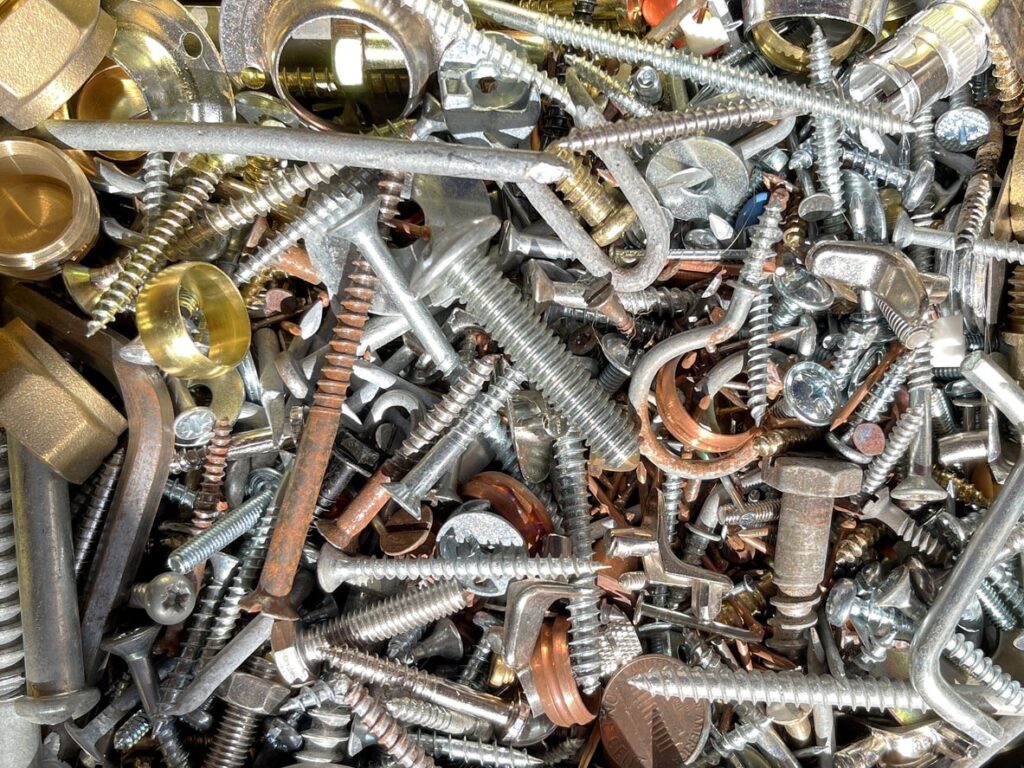
9. Sustainability Considerations in the Fastener Industry
As industries strive to become more environmentally conscious, the fastener industry is also focusing on sustainability. Forging is generally considered a more environmentally friendly manufacturing process compared to casting or machining, as it produces less waste and requires less energy. The use of recycled materials in the forging process further contributes to reducing the industry’s environmental footprint.
By choosing forged fasteners, companies can benefit from the durability and longevity of these products, leading to fewer replacements and reduced material waste. This aligns with the growing emphasis on sustainable practices in manufacturing and helps businesses achieve their environmental goals.
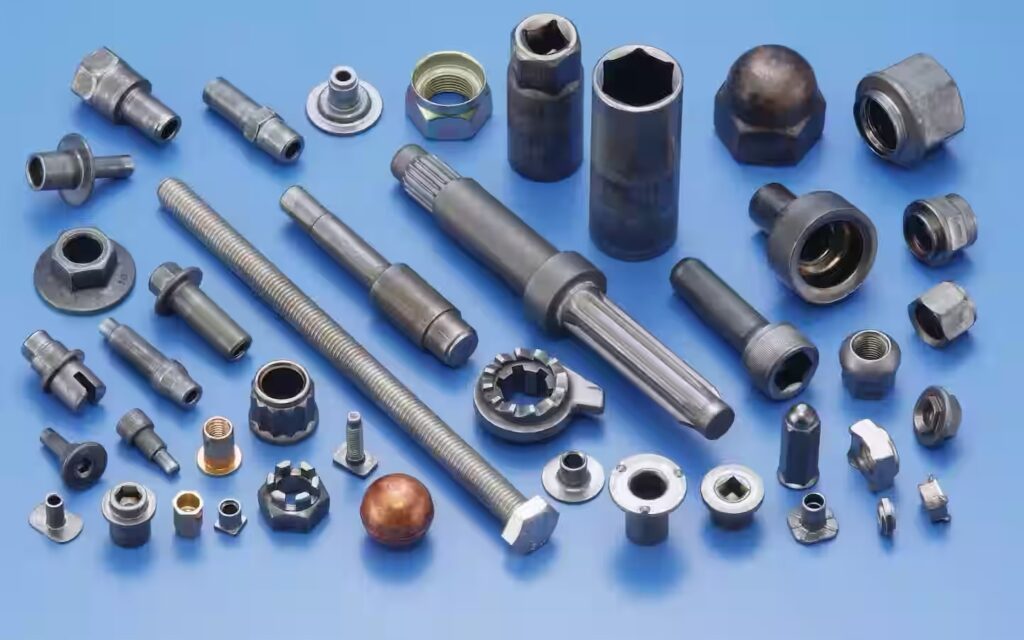
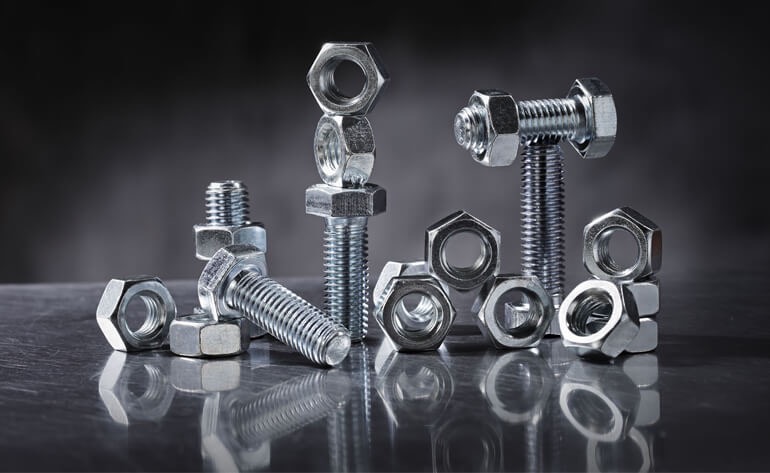
So, The forging industry is integral to the fastener sector, providing high-quality components that meet the stringent demands of various applications. Forged fasteners, including bolts, nuts, screws, and specialty fasteners, offer exceptional strength, durability, and corrosion resistance, making them suitable for critical use in construction, automotive, aerospace, and other industries. The ability to produce custom forgings tailored to specific requirements further enhances the value of forged products in the fastener industry.
As technology continues to evolve, the forging industry will play a crucial role in driving innovation and improving the quality and performance of fasteners. For companies like Manan Forge, which specialize in producing forged solutions for the fastener industry, the opportunities for growth and collaboration are significant. By delivering high-quality forged fasteners that meet the needs of various sectors, these companies can contribute to the success and safety of their clients’ operations while supporting the ongoing evolution of the fastener industry.
